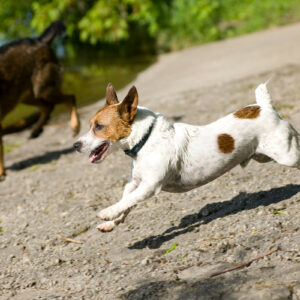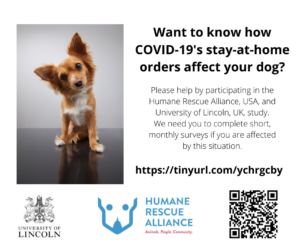Barks Blog
Lockdown to Normality…What Does It Mean for Dogs?

I’ve spent a lot of time over these last few weeks writing about how to help dogs and their guardians during the somewhat challenging situation of social distancing and lockdown posed by the COVID-19 pandemic. For example, how do we cope with restricted exercise, the lack of social contact, changed routine etc.? There’s no doubt that it has been extremely difficult for some. From my own perspective, my dogs have coped very well, and within my dog training business, I have implemented measures such as ‘virtual’ contact for guardians. It may have been a little ‘sticky’ at first, to say the least, but in the end it has worked really well. So, moving forward I would say many of us, dogs and guardians alike, have found ourselves habituating to this new way of life. But how do we graduate to the next stage?
During this shut-away period, I have heard a lot of people have comment on how lovely it has been to actually spend time with their dogs. Indeed, it has given many of us time to understand our dogs more, maybe more so than we had time for previously. We’ve been able to better understand their foibles, become more aware of their behavior and their moods, their likes and dislikes, maybe the status of their health, and more. Mutually, of course, our dogs have also benefited from time with us. How often do they have the opportunity to spend prolonged time with us enjoying grooming, affection, attention, scent games etc.? On the downside, however, professionals who work with dogs are concerned that, once people’s routines change as work re-starts and schools open, all of this abruptly ends. How will our dogs cope? Well, many will cope just fine, but others may struggle. Dogs who, for example, suffer with anxiety, separation distress, post traumatic stress disorder, or those who have recently been adopted into a new home may all have been aided greatly by the circumstances of lockdown — but may relapse when the situation returns to normal.
Think also about dogs who are currently enjoying a higher degree of mental and physical stimulation and enrichment than usual. A busy household with its cacophony of sounds and non-stop invitations to play provide many fantastic opportunities that may not always be so available. I know many of my clients also devised wonderful creations to keep their dogs happy during this period, including brilliant agility courses, dog dens, digging areas, scent trails, and even a water park! So what happens now? Does it all stop? In my opinion, we’ve need to do our best to maintain as much as we can in order to stop boredom, frustration, anxiety and all the associated symptoms and behavioral effects that may creeping in as a result.
For reactive dogs, not having contact with other dogs for a while can actually act as respite and be a good thing since it allows the cascade of brain chemicals which continually rise during reactive episodes (and lower the reactivity threshold) to fall. For dogs who enjoy canine company, consider how you feel not seeing those you love for so long — not good? It’s may be the same for your dog! So don’t blame him for being a little ‘gung ho’ when he meets another dog during walks or free play after several weeks of being isolated. He (and the other dog) may be over-excited at the prospect of renewed access and the meeting may be over-exuberant. Similarly, your dog’s reactions may be different than you last remember and may be cause for concern. There could be many reasons though. Maybe he’s just so desperate to meet another dog. Maybe he’s anxious or fearful or perhaps he’s just super excited. Being apart or kept on a leash for so many weeks can have consequences, so be aware and take advice from a professional if you’re concerned.
Puppies especially have had something of a challenging time and I really feel for their guardians, who have been doing their very best to socialize them and habituate them to worldly experiences. It’s been tough because how can you help pups adapt when you can’t mix with other people or dogs or when you are restricted in where you can take them? I’m currently working with several guardians whose puppies have been affected and we are starting the process of sound desensitization. Meanwhile, the issue of fear and anxiety remains pertinent for older behavioral cases, especially those who were working through fear programmes prior to lockdown and whose treatment may now have lapsed (although virtual consults can help).
This brings me on to training or behavior modification programmes. It is frustrating to have to cease them mid-course, although again, virtual consults may have been able to plug the gap somewhat. Nevertheless, dog training and behavior professionals will have to carefully re-evaluate where they are in terms of progress and possibly expect a relapse when they can actually re-start work.
Lockdown has most certainly affected every part of our lives and everybody in them, including our dogs. It would serve us well to maintain an awareness moving forwards and out of this period, to help our dogs and to try to avoid behavior issues arising in future.
PPG member Tracy Krulik and her colleagues at the Humane Rescue Alliance in Washington, D.C., are collaborating with Prof. Daniel Mills and his team of researchers at the University of Lincoln in the U.K. to study what effects the pandemic stay-at-home orders may have had on pet dogs, how they are coping and how they will continue to cope after the pandemic. Please take a moment to help them gather as much data as possible to examine the effects of major changes in routine on our canine companions. Fill out the survey.


